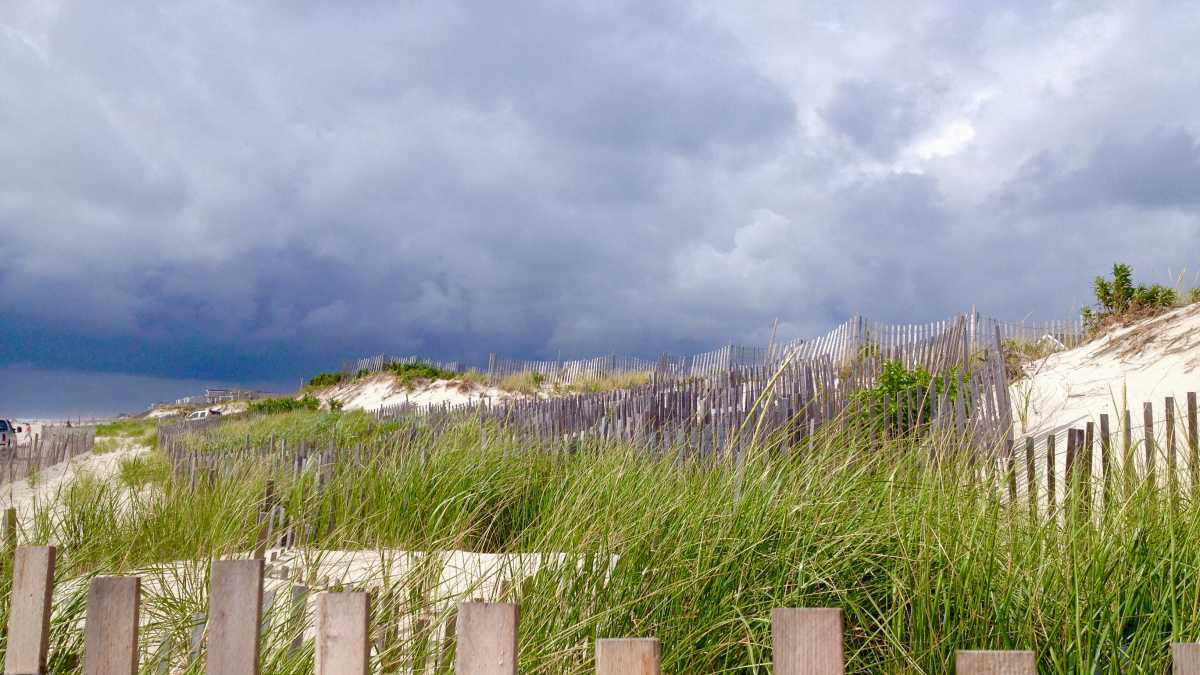Assemblyman says he was working with state on dune easement terms before lawsuit

South Seaside Park dunes in August 2014. (Photo: Justin Auciello/for NewsWorks)
A North Jersey Assemblyman says he was working directly with the state Department of Environmental Protection prior to the filing of an eminent domain lawsuit that targets a portion of his family’s oceanfront property in Brick for protection dune development.
According to a statement from Assemblyman John McKeon, a Democrat who represents portions of Essex and Morris counties, he has been in conversations with the state regarding the “precise terms” of the easement.
“My family and I are not looking for one penny nor anything other than to assure that there will be an integrated dune system,” the statement said. “Our family home survived because of the meticulous nature by which we maintained the dune for years. Our concern has always been about where the dune is going to be sited and whether we would be permitted to maintain it on a going-forward-basis.”
Reached late Friday afternoon for comment, a state official said that they have been responsive to McKeon’s concerns.
“Any questions the assemblyman has asked, we have answered. We have responded to his questions over the span of two years now,” said Bob Considine, Department of Environmental Protection spokesman.
McKeon is among seven defendants in the eminent domain lawsuits.
The state warned last month that officials would file lawsuits if property owners did not comply. Lawsuits are also pending in Long Beach Island, Ocean City, Margate.
In addition to Brick, outstanding easements remain in Mantoloking, Long Beach Island, Margate, and Longport. 283 easements, of which 176 are on private land, are outstanding on the Barnegat Bay Island.
Margate officials have maintained wooden bulkheads are sufficient to protect against ocean flooding, and that most of the damage from Superstorm Sandy in 2012 came from the bay on the other side of town.
State officials say they will continue fighting to obtain the easements necessary to protect the public.
“We appreciate that many property owners – clearly mindful of the destruction caused by Superstorm Sandy – have unselfishly donated easements for the greater good rather than engage the state in protracted litigation,” Acting N.J. Attorney General John J. Hoffman said in July.
“But to those who continue to hold out, our message is that we remain committed to acquiring these easements as expeditiously as possible, and – consistent with a landmark Supreme Court decision issued in 2013 – without paying windfalls at the public’s expense.”
WHYY is your source for fact-based, in-depth journalism and information. As a nonprofit organization, we rely on financial support from readers like you. Please give today.

